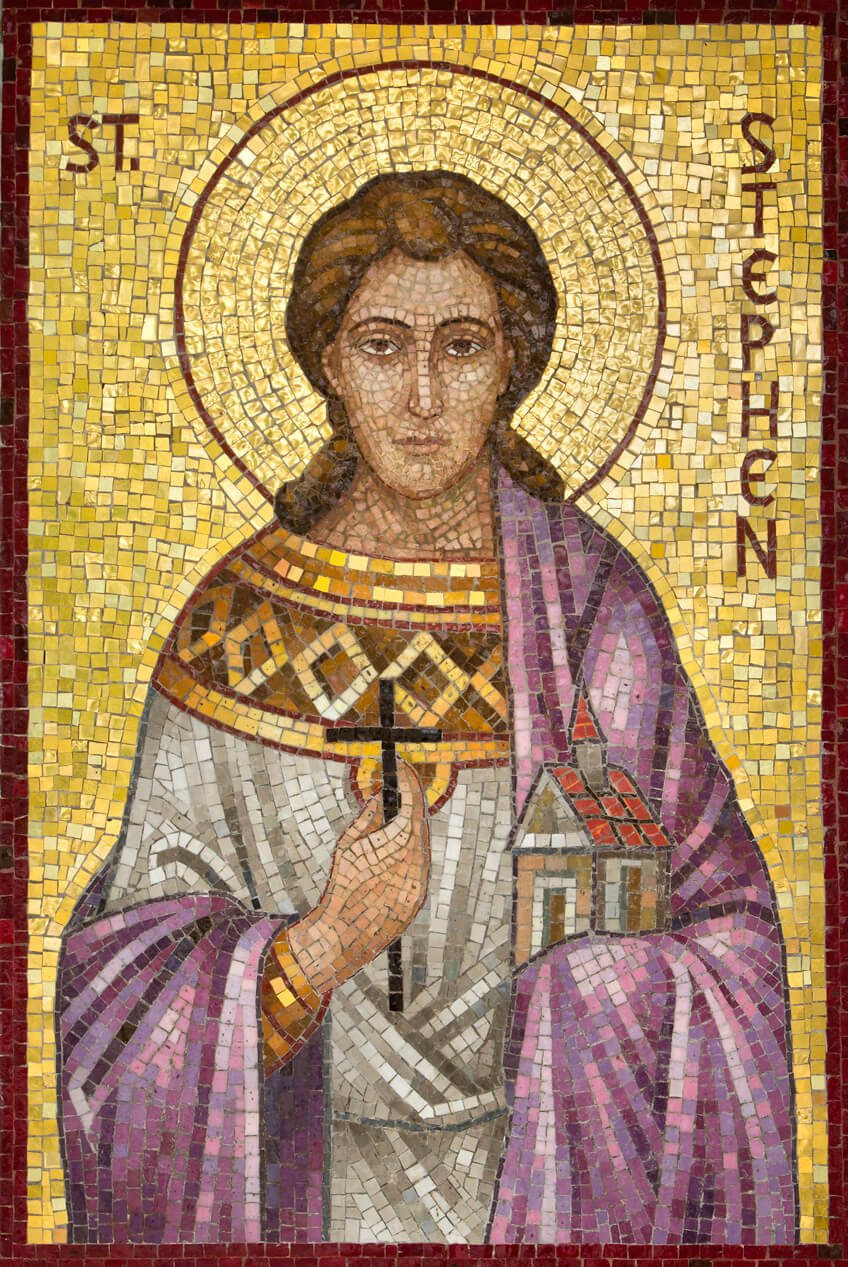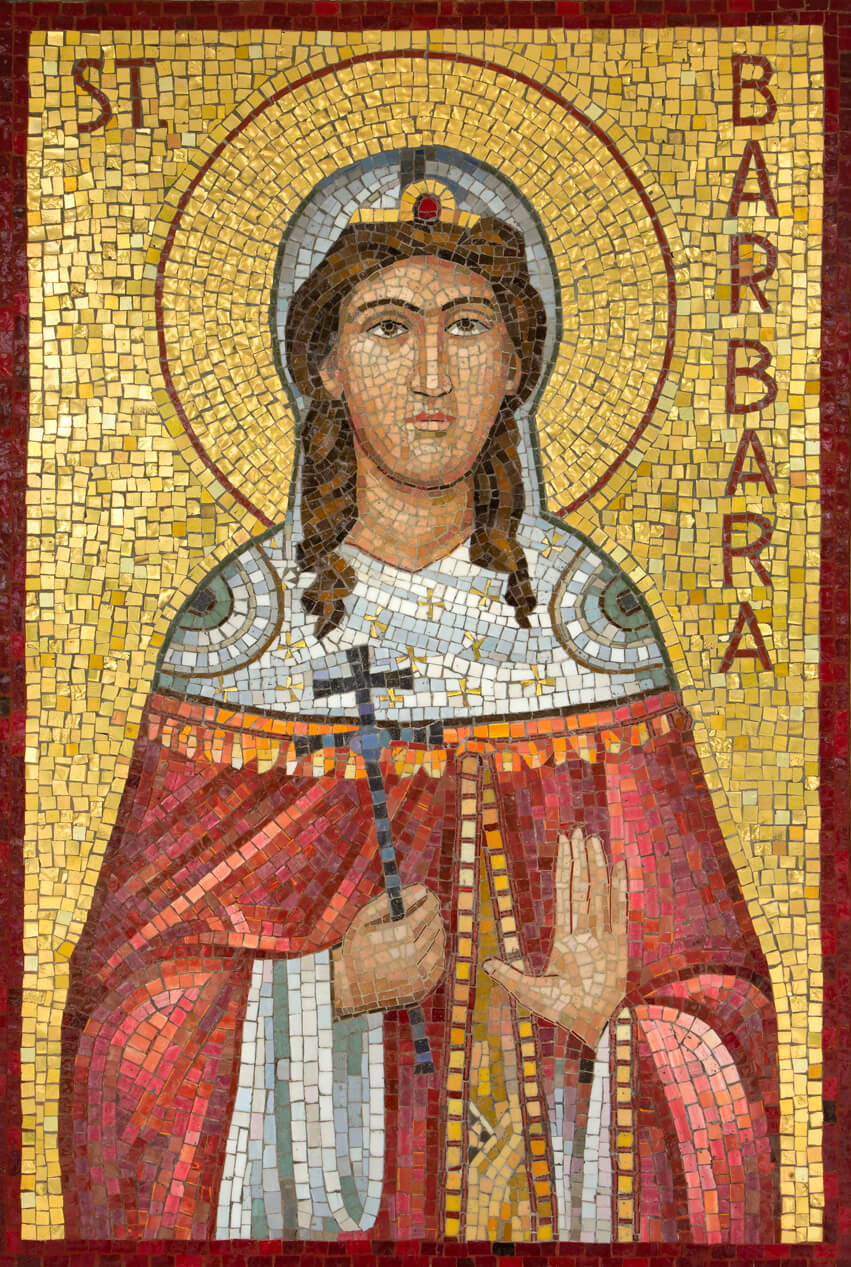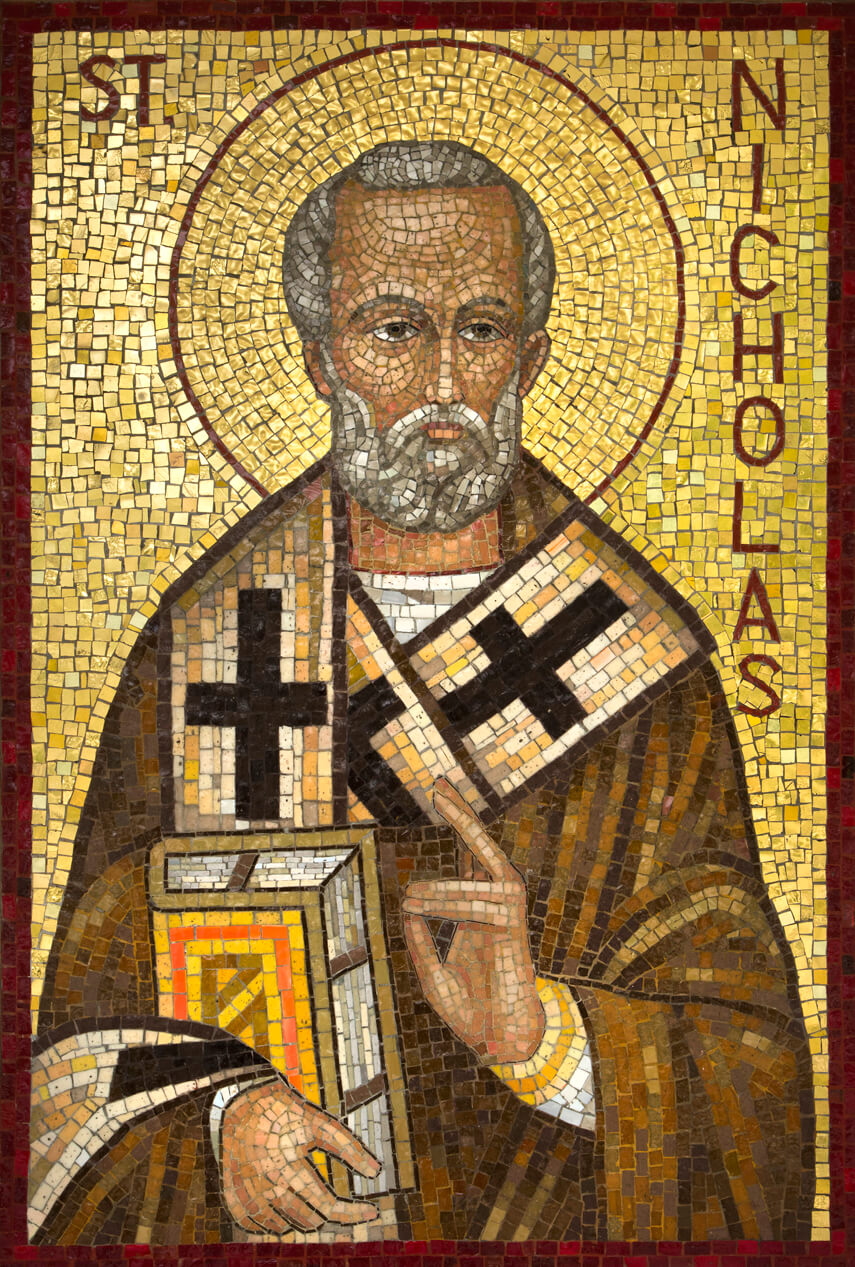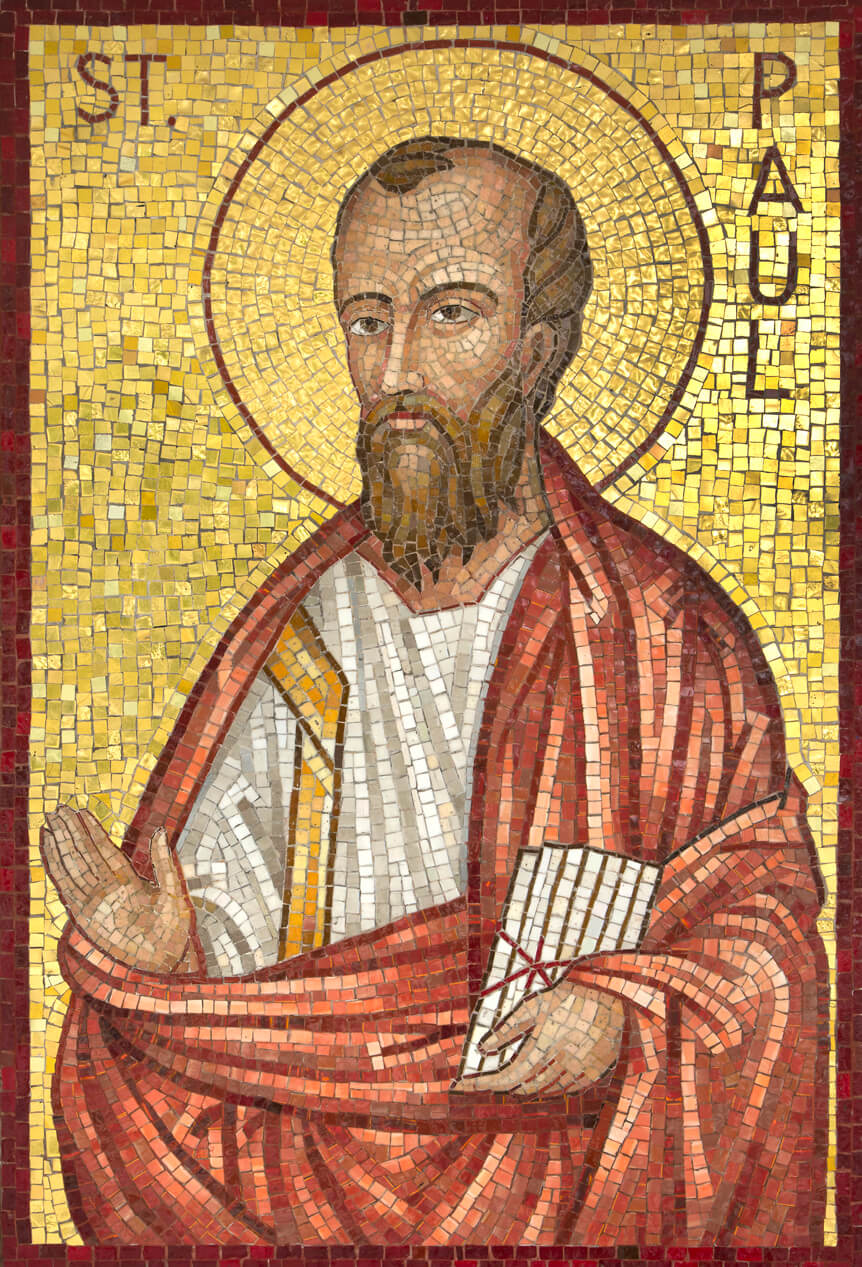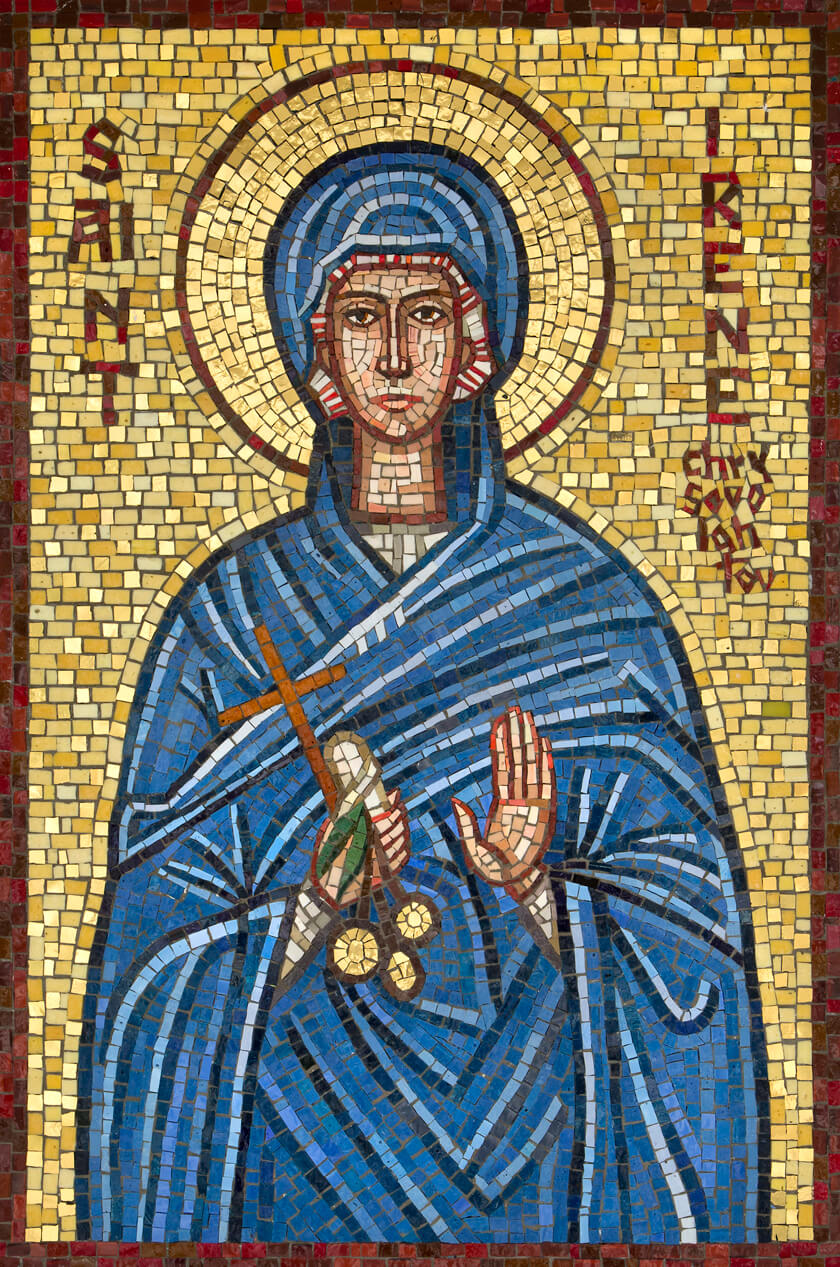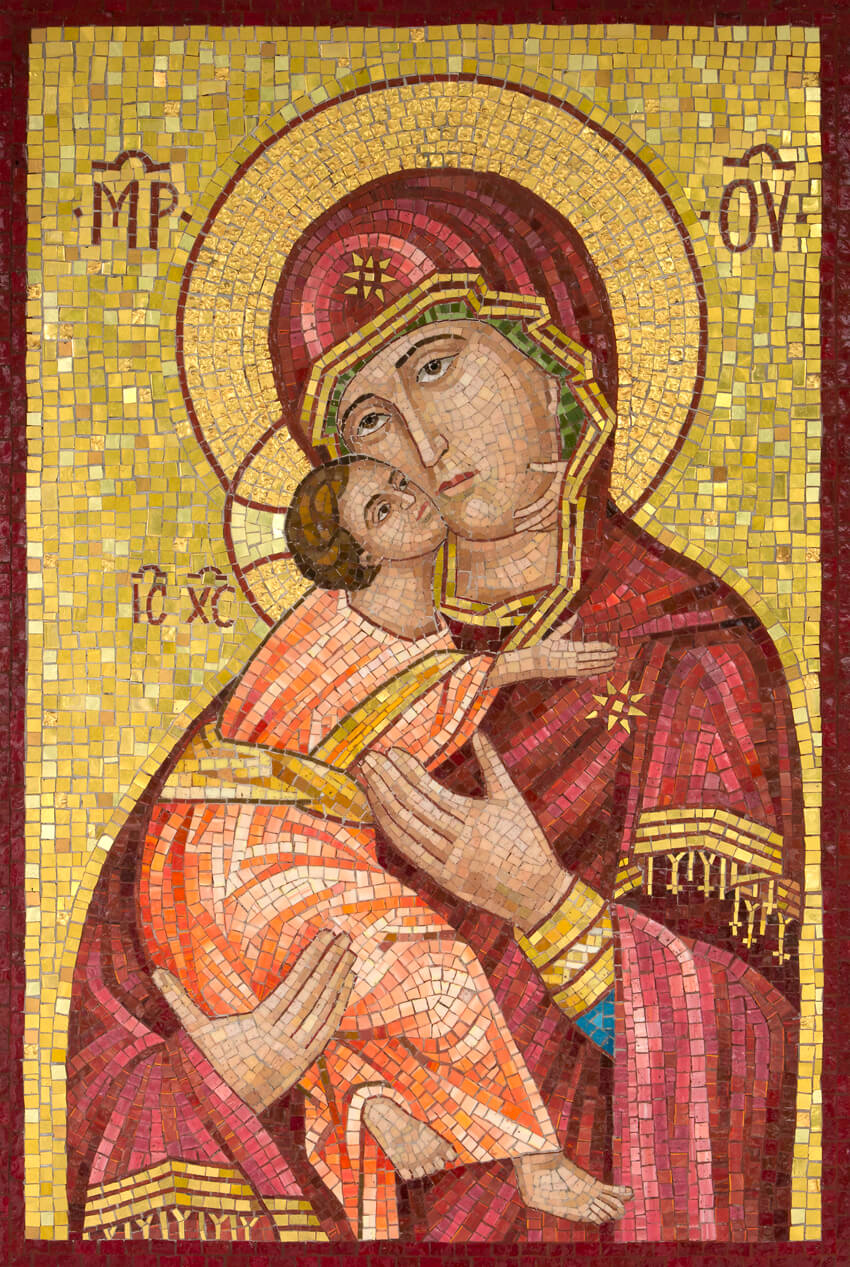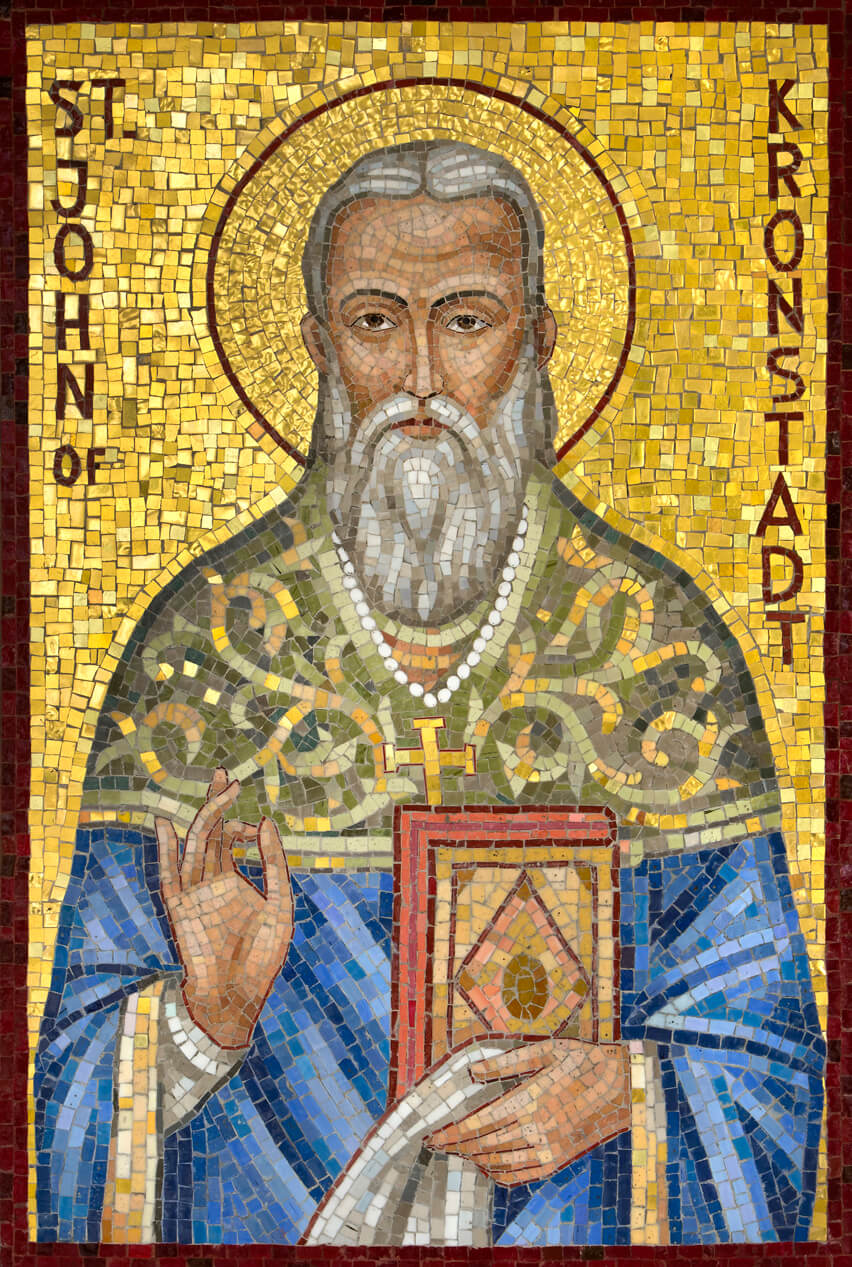Praise the Lord! Sing to the Lord a new song!
Sing His praises in the assembly of the saints!
-Psalm 149:1
At the celebration of every service in the Church Orthodox Christians are asked to “remember all the saints” beginning with “the Theotokos and ever-virgin Mary” and her “yes” to God’s plan for her life (Luke 1:38); and then, like all of them, to commit “our whole life to Christ our God.” Who are the saints that we are asked to remember in these petitions?
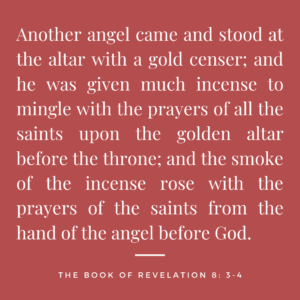 The saints are those men and women who, throughout the centuries and in every culture, have loved God and borne witness to the Good News of Jesus Christ in the power of the Holy Spirit, and remained faithful to Him to the end, often at the cost of their own lives. They are people who have been transformed by their faith and truly are the “real deal” as Christians. They are men and women from every generation who have been canonized, i.e. set up as models of what it means to truly follow Christ and be faithful to Him, seeking and striving for His kingdom as their first priority in life (Matthew 6:33). When we speak of Sts. Peter and Paul and the apostles, Sts. Katherine, Irene and Barbara the martyrs, Sts. Basil, John Chrysostom and Nektarios the bishops, we are speaking of people who have been canonized by the Church in an official manner to serve as models of faithfulness and holiness for us to emulate. Canonization does not “make” anybody a saint. Canonization recognizes that someone already was, in his/her own lifetime, a saint.
The saints are those men and women who, throughout the centuries and in every culture, have loved God and borne witness to the Good News of Jesus Christ in the power of the Holy Spirit, and remained faithful to Him to the end, often at the cost of their own lives. They are people who have been transformed by their faith and truly are the “real deal” as Christians. They are men and women from every generation who have been canonized, i.e. set up as models of what it means to truly follow Christ and be faithful to Him, seeking and striving for His kingdom as their first priority in life (Matthew 6:33). When we speak of Sts. Peter and Paul and the apostles, Sts. Katherine, Irene and Barbara the martyrs, Sts. Basil, John Chrysostom and Nektarios the bishops, we are speaking of people who have been canonized by the Church in an official manner to serve as models of faithfulness and holiness for us to emulate. Canonization does not “make” anybody a saint. Canonization recognizes that someone already was, in his/her own lifetime, a saint.
The word canonization means that a Christian has been found worthy to have his/her name placed in the canon or official list of the saints of the Church. This canon is read during the various liturgical services of the Church, particularly Orthros or Matins. Every day of the year is dedicated to a number of saints whose names are remembered by God’s people. 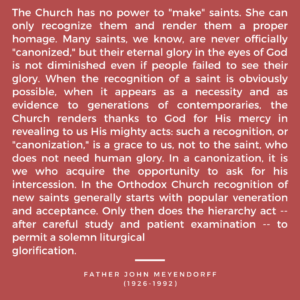 When a Christian’s name has been included in the canon of saints, it is a sign that the Church encourages the faithful to ask that saint for his/her prayers before God. Liturgical services may be specially composed in the saint’s honor and celebrated by the Church. For the first thousand years of the history of the Church saints were recognized without any formal rite of canonization. Local congregations of the faithful simply began to remember certain well-known Christians in their liturgical gatherings, to ask them for help in prayer, to visit their relics, which frequently remained vehicles of the Holy Spirit, curing the sick in soul and body, as they had during earthly life. In the 10th century, in the west, the then-Orthodox Church of Rome began to insist that saints be formally and officially “registered” as such with the papal authorities. The first recorded canonization of this type was that of St. Ulrich of Augsburg, canonized in 993 by Pope John XV. For the next 600 years — during which time the Roman Catholic Church split off from the Orthodox community — the west developed a very precise (and some would say even legalistic) method of determining who were to be canonized as saints. The Orthodox Church never developed any comparable methods for canonizing saints. As in the early Church, the situation has remained very much determined by local practices and local traditions. Holy men and women continue to be recognized as such during their own lifetimes; they continue to be venerated and honored after their death; and Christian people continue to ask for their prayers and to visit their shrines.
When a Christian’s name has been included in the canon of saints, it is a sign that the Church encourages the faithful to ask that saint for his/her prayers before God. Liturgical services may be specially composed in the saint’s honor and celebrated by the Church. For the first thousand years of the history of the Church saints were recognized without any formal rite of canonization. Local congregations of the faithful simply began to remember certain well-known Christians in their liturgical gatherings, to ask them for help in prayer, to visit their relics, which frequently remained vehicles of the Holy Spirit, curing the sick in soul and body, as they had during earthly life. In the 10th century, in the west, the then-Orthodox Church of Rome began to insist that saints be formally and officially “registered” as such with the papal authorities. The first recorded canonization of this type was that of St. Ulrich of Augsburg, canonized in 993 by Pope John XV. For the next 600 years — during which time the Roman Catholic Church split off from the Orthodox community — the west developed a very precise (and some would say even legalistic) method of determining who were to be canonized as saints. The Orthodox Church never developed any comparable methods for canonizing saints. As in the early Church, the situation has remained very much determined by local practices and local traditions. Holy men and women continue to be recognized as such during their own lifetimes; they continue to be venerated and honored after their death; and Christian people continue to ask for their prayers and to visit their shrines.
It is the Holy Spirit who is the source of all holiness, all sanctity, in the life of the Church. Saints may be found in every country and every culture, ranging from Greece, Turkey and Russia to Serbia, Romania and America; from Palestine, Libya and Egypt to France, Ireland and Italy. Saints come from all walks of life: men and women, husbands and wives, kings and queens, soldiers, merchants, slaves, students, peasants and aristocrats, bishops and priests, monks and nuns.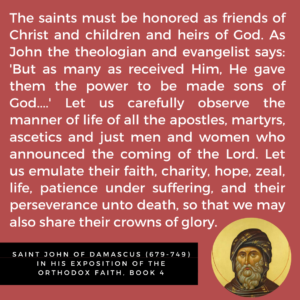 All were ordinary people who chose to live their lives in complete dedication to God, allowing Him to renew and transform them from the inside out. The saints, no matter what country they were from, language they spoke or station in life, never betrayed their innermost beliefs about Christ and strove to live their lives in complete honesty and integrity, no matter what the cost. They lived with courage and determination, love and humility, compassion, grace and joy. The saints reveal human potential at its finest and serve as role-models for us to follow today. To know and understand the saints of the Church is to deepen our relationship with their Master and ours, our Lord Jesus Christ. However – and this is important! – the saints are not simply those men and women whose icons adorn the walls and windows of our Churches. St. Paul writes that we are “all called to be saints” (Romans 1:7). In other words, every Christian is called to be a saint, to be holy as God is holy, to be perfect as our Father in heaven is perfect (Romans 1:7; 2 Corinthians 1:2; 2 Peter 1:15; Matthew 5:48). To become ever more Christ-like, to be holy, to be a saint: this is God’s will and plan for our life!
All were ordinary people who chose to live their lives in complete dedication to God, allowing Him to renew and transform them from the inside out. The saints, no matter what country they were from, language they spoke or station in life, never betrayed their innermost beliefs about Christ and strove to live their lives in complete honesty and integrity, no matter what the cost. They lived with courage and determination, love and humility, compassion, grace and joy. The saints reveal human potential at its finest and serve as role-models for us to follow today. To know and understand the saints of the Church is to deepen our relationship with their Master and ours, our Lord Jesus Christ. However – and this is important! – the saints are not simply those men and women whose icons adorn the walls and windows of our Churches. St. Paul writes that we are “all called to be saints” (Romans 1:7). In other words, every Christian is called to be a saint, to be holy as God is holy, to be perfect as our Father in heaven is perfect (Romans 1:7; 2 Corinthians 1:2; 2 Peter 1:15; Matthew 5:48). To become ever more Christ-like, to be holy, to be a saint: this is God’s will and plan for our life!
WISDOM OF THE SAINTS
- The Lives of the Saints whose Icons Adorn St. Paul’s Education Center by Father Steven Tsichlis
- The Way of the Saint by Father Thomas Hopko
- On the Essential Role of the Saints: Everything Is Like an Ocean by Father John Oliver
- St. Basil the Great by Robert Payne
- St. Basil: Building the New City by Paul Schroeder
- St. John Chrysostom: The Prophet of Charity by Father Georges Florovsky
- How Christians Live from The Apology of St. Aristedes of Athens to the Roman emperor, Antoninus Pius, c.150 AD
- How a Christian is to Live by St. Benedict of Nursia
- Saint Anthony the Great adapted from Thomas Merton’s The Wisdom of the Desert
- Saint John of the Ladder and The Ladder of Divine Ascent
- The Way of Life and the Way of Death from the Didache or “Teaching of the Apostles” written anonymously c. 125 AD
- Saint Kosmas the Aitolian by Father Steven Tsichlis
- Sayings of Saint Seraphim of Sarov
- On Doing the Will of Jesus by St. Ignatius Brianchaninov
- Fr. Lev Gillet: The Monk in the City, a Pilgrim in many worlds by Fr. Michael Plekon
- Mother Maria Skobtsova: Saint of the Open Door by Jim Forest
- Remembering Ecumenical Patriarch Athenagoras by Olivier Clement
- Remembering Metropolitan Anthony of Sourozh by Jim Forest
- Life in the Church by Father Alexander Elchaninov from The Diary of a Russian Priest
- Father George Calciu: Priest, Prisoner and Confessor of the Faith by Fr. Steven Tsichlis





